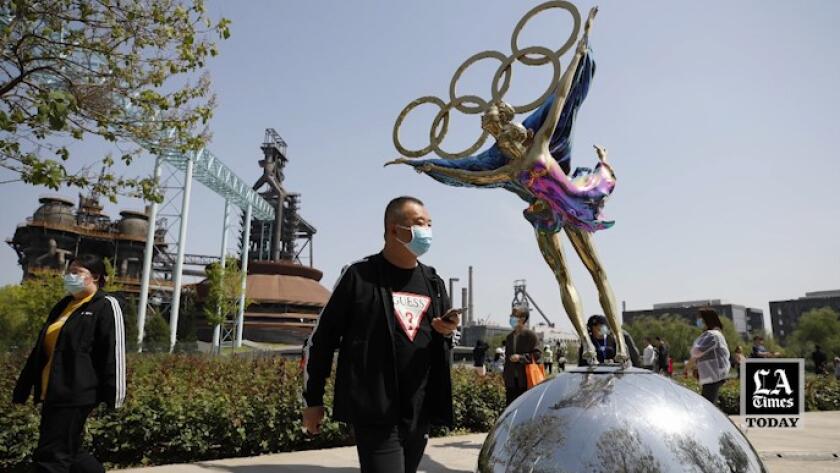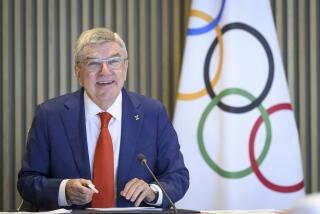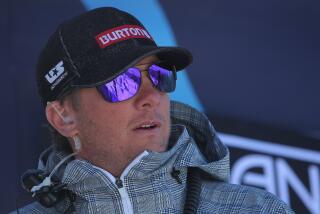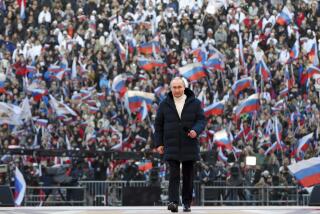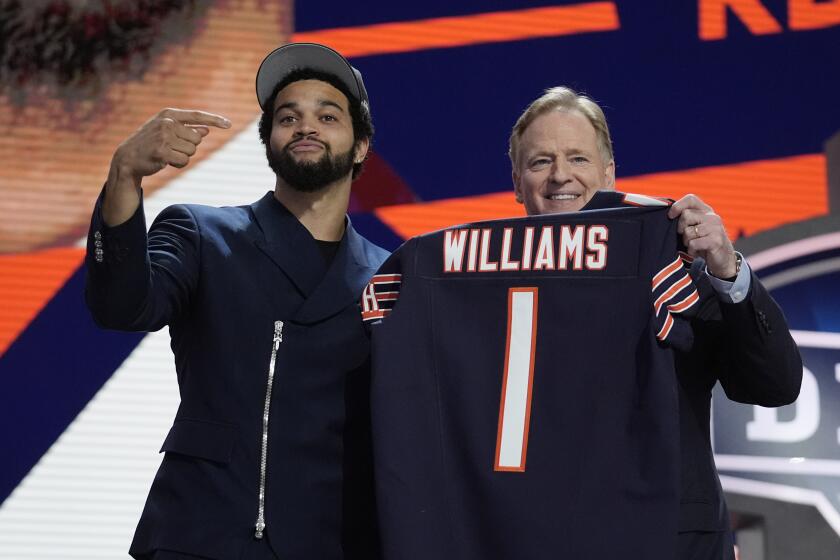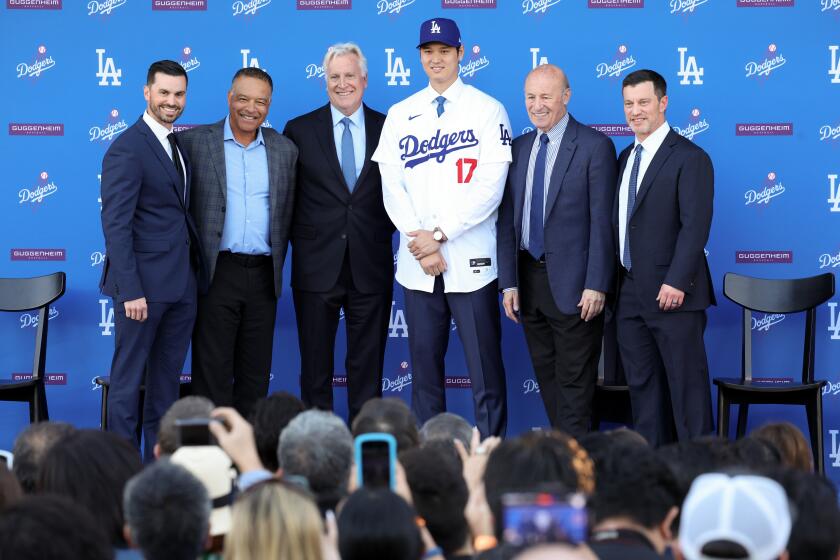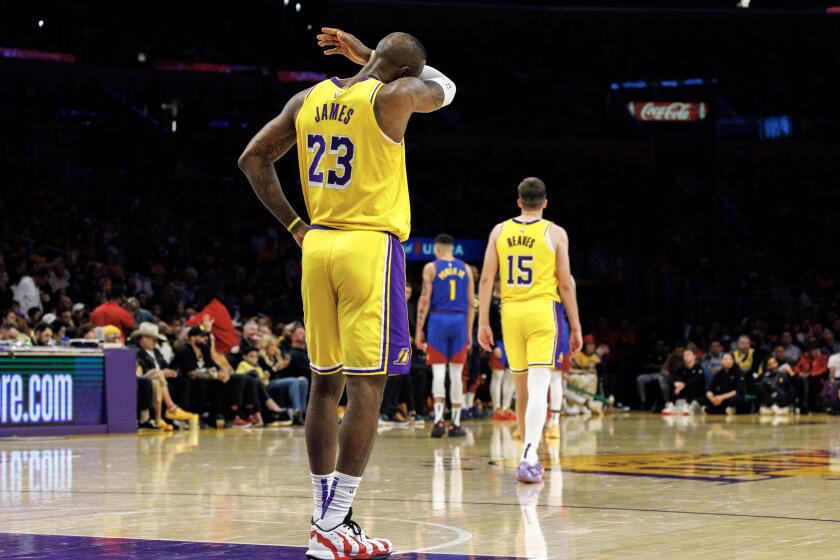Allegations of doping cast a shadow over the Olympic movement
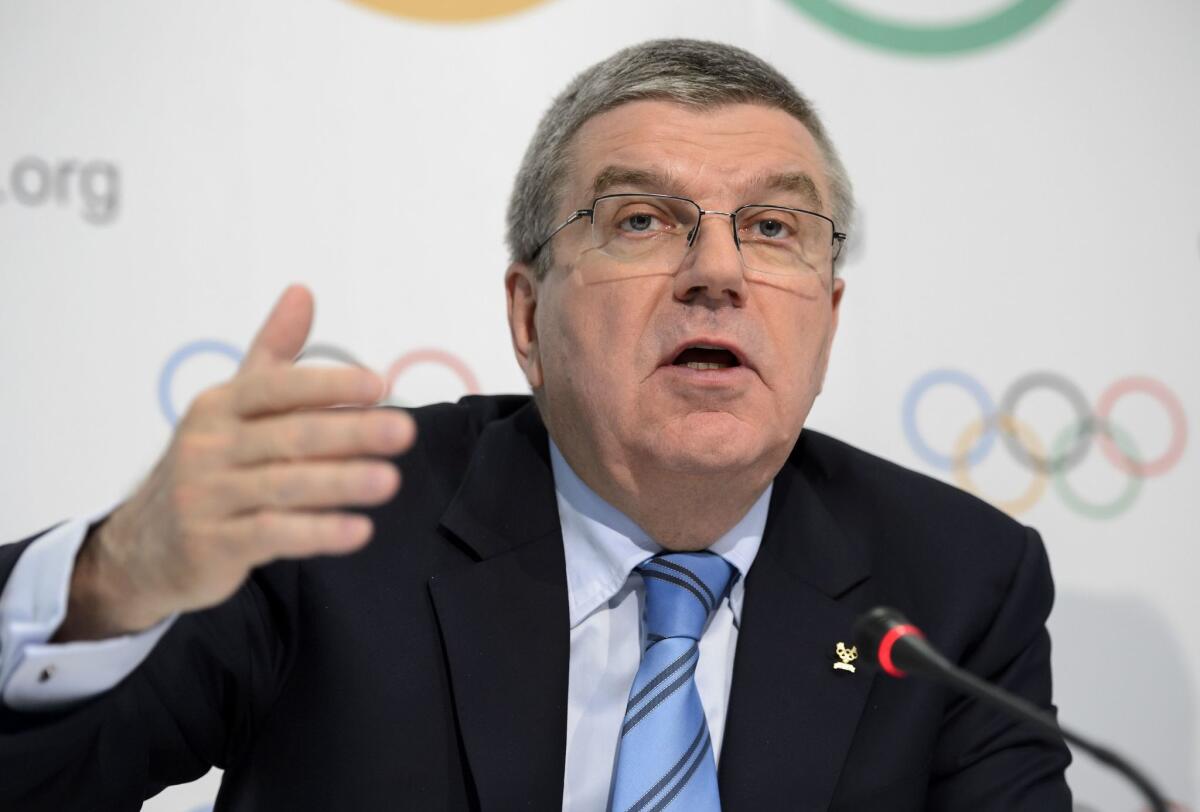
IOC President Thomas Bach speaks at a Dec. 10 news conference in Lausanne, Switzerland.
With the 2016 Summer Games less than three months away, the specter of doping and bribery has cast an ever-lengthening shadow over the Olympic movement.
The situation is serious enough that the president of the International Olympic Committee spent Wednesday morning talking about official inquiries and the prospect of banning not only athletes but entire national federations.
“We have in the IOC all the instruments in place to fight against corruption,” Thomas Bach told reporters during a hastily scheduled teleconference. “That does not mean we are immune to corruption.”
The committee has begun using new scientific methods to reanalyze hundreds of samples that were stored from the 2008 Beijing Games and the 2012 London Games.
So far, 31 athletes from 12 countries that competed in Beijing have tested positive and more results are expected in coming days.
Just as troubling, recent media reports have alleged state-sponsored cheating inside a Russian testing laboratory during the 2014 Sochi Olympics.
“The allegations are pretty detailed and therefore very worrying,” Bach said.
“60 Minutes” and the New York Times reported on alleged Russian doping programs that included lab workers helping to switch clean urine for tainted samples. The World Anti-Doping Agency has agreed to conduct an investigation and plans to retest samples from those Games.
“There is so much fallout from this,” said Bill Smith, a University of Idaho professor who specializes in sport and international affairs. “It certainly raises a question of credibility.”
The scandal dates to last year when a WADA report alleged systemic cheating among athletes, coaches and officials within the Russian track and field program. The entire team was subsequently banned from international competition.
Russian officials have promised significant changes in hopes of earning reinstatement for the Games in Rio de Janeiro this summer, but have faced increasing skepticism.
The international track federation is scheduled to vote on the matter next month. Bach was asked if the entire Russian Olympic contingent might be banned from these or future Games.
“We are waiting now for the result of the WADA inquiry and we’re taking our decisions based on established fact,” he said. “We have to respect this procedure.”
U.S. federal prosecutors are also looking into the matter, the New York Times reported.
Get the latest in sports with our free newsletter >>
Federal courts have allowed foreigners to be prosecuted if there is a connection to business in the United States, and top Russian athletes routinely compete here. The same U.S. attorney’s office for the Eastern District of New York examining the doping allegations is also investigating corruption within FIFA, soccer’s international governing body. That case has already resulted in charges against two corporations and more than three dozen soccer officials and business executives.
Doping isn’t the only worry for the IOC. French prosecutors are investigating a $2-million payment made by Tokyo officials around the time that city won its bid to host the 2020 Summer Games.
The payment was sent in two installments from Tokyo’s bid committee to a Singapore company whose account is held by a close friend of Papa Massata Diack. Diack and his father, Lamine, are former international track federation officials under investigation for alleged corruption.
Japanese Olympic officials have characterized the $2 million as legitimate payment for consulting services, but the situation has renewed concerns about bid cities trying to buy votes from IOC members.
“We will not start a parallel inquiry because this could be a hindrance,” Bach said. “Our way of approaching this is the active cooperation with the French authorities.”
The recent developments have drawn attention from Rio de Janeiro, where organizers have struggled with political upheaval, a failing economy, water pollution and the Zika virus outbreak.
Last week, the country’s Senate voted to remove leftist President Dilma Rousseff from power and subject her to an impeachment trial on charges of misleading fiscal accounting. Bach has since spoken with Michel Temer, the interim president.
“The President Temer was very clear in his personal commitment and the one of his government to do everything to make these Olympic Games a great success for Brazil,” Bach said, adding: “From my side, I could express to him my full confidence.”
In the meantime, the IOC and WADA say they will expedite their doping investigations in hopes of gathering information — and rendering potential sanctions — before the Aug. 5 opening ceremony in Rio.
“Whatever the result will be,” Bach said, “we’ll do everything to provide a level playing field.”
Watch L.A. Times Today at 7 p.m. on Spectrum News 1 on Channel 1 or live stream on the Spectrum News App. Palos Verdes Peninsula and Orange County viewers can watch on Cox Systems on channel 99.
Follow David Wharton on Twitter: @LATimesWharton
See more of our top stories on Facebook >>
ALSO
Lakers’ draft decision should be easy: Take who’s left between Brandon Ingram and Ben Simmons
A day in the life of Nyquist: ice boots, exercise, maybe even acupuncture
Two fans beat Dodgers traffic by walking to the game – 22 miles from Sherman Oaks
More to Read
Get our high school sports newsletter
Prep Rally is devoted to the SoCal high school sports experience, bringing you scores, stories and a behind-the-scenes look at what makes prep sports so popular.
You may occasionally receive promotional content from the Los Angeles Times.

